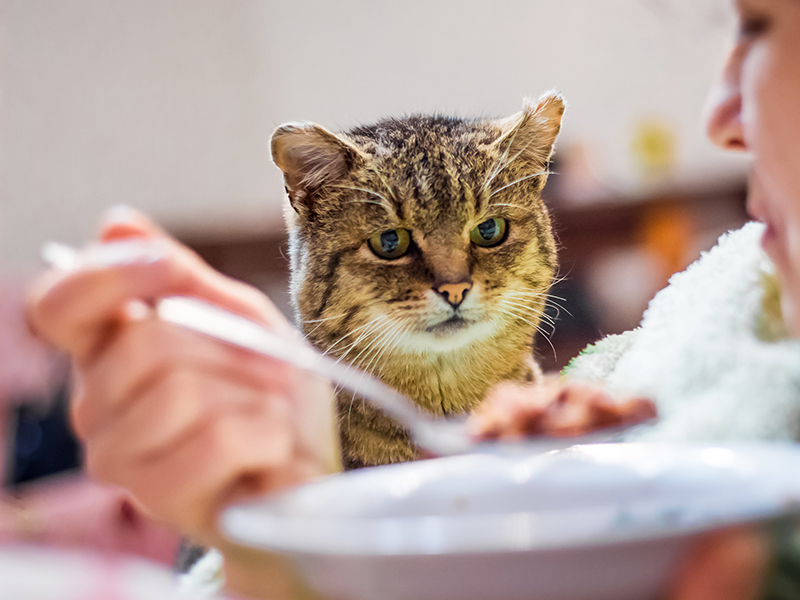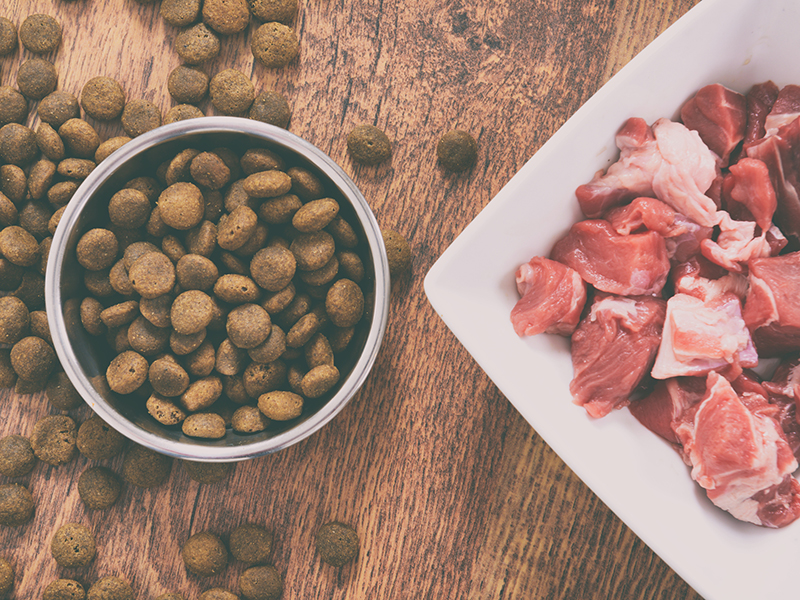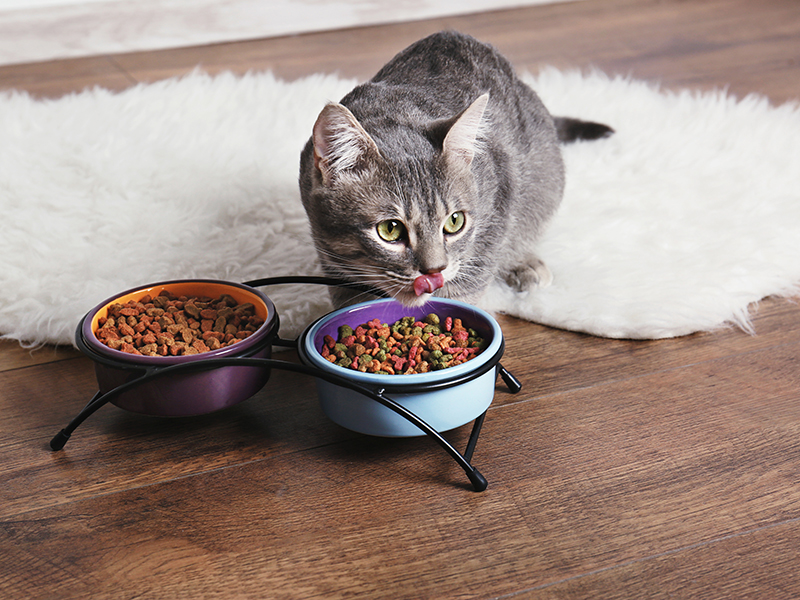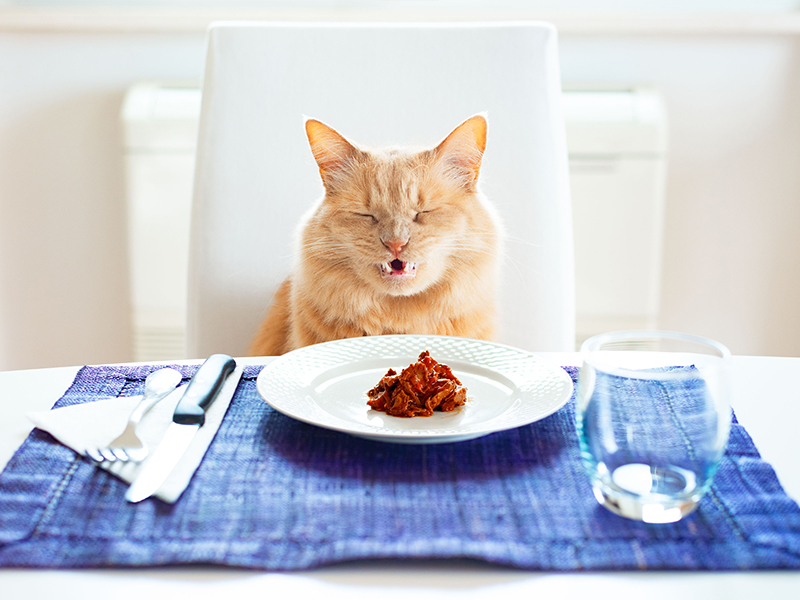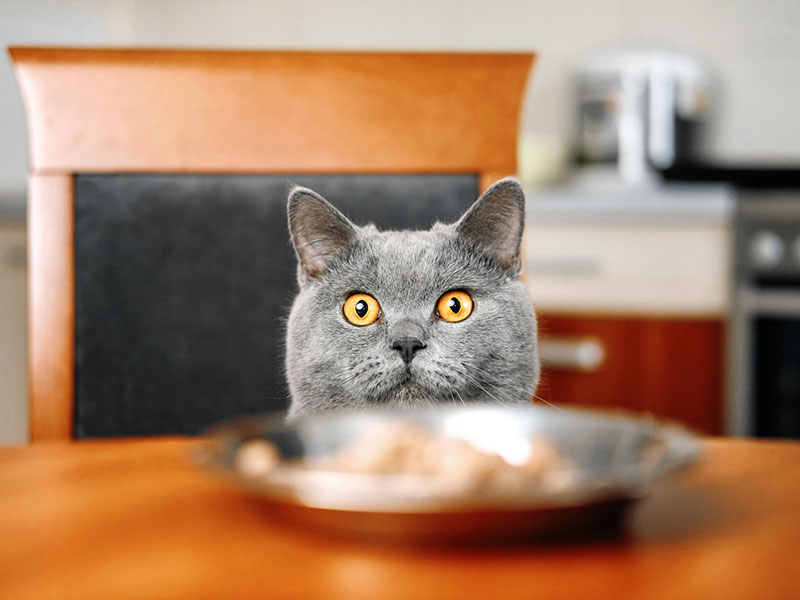Yes, they’ll always be your little kitty, but did you know their 12th birthday marked an entry into their golden years? There’s no major science behind it, but vets generally agree that in the first 2 years of a cat’s life, they age around 25 human years! Then every following birthday is equivalent to about 4 human years. No wonder they mince around the house with so much regal authority – that’s no teenage kitty!
Your cat may still have moments of energetic play, but as they grow older, you’ll find those meows getting more mellow. Like with humans, aging comes with its own set of unique quips – cats experience those ailments too so it’s important to adjust your senior cat’s lifestyle and nutrition accordingly.
Unfortunately, there’s no one-size-fits-all approach to this; every cat will experience a unique set of nutritional challenges as they grow older, but here’s more info on what to consider when adjusting your senior cat’s diet.
Weight Management
Some aging cats tend to suffer from a loss of appetite (which often indicates an underlying illness) that results in weight loss. On the other end of the spectrum, the reduced activity that comes with old age sometimes sends seniors into obesity if they maintain the same rigorous diets and eating habits they had in their earlier years.
Adult cat food is usually nutrient-dense (more so with dry food diets) so if an inactive cat simply eats a few extra calories a day, they often chalk up some unhealthy weight gain.
It’s not so much that your cat suddenly wants to eat more or less as they age, but it’s really slanted to the fact that they are moving a lot less than they did when they were younger. This becomes an increasing reality for senior indoor cats who don’t really roam around (and continue having all day access to their food bowls).
A good daily calorie intake guideline for senior indoor cats is around 50 calories per body weight kilogram – you can adjust this according to their activity level.
If you’re struggling to regulate how much your cat is eating, you could try swapping the free feeding routine to a more structured mealtime. That way you can use portion control twice daily to help your cat lose or maintain a healthy weight.
If you feel that your cat is putting on too much weight, chat to your vet to guide you through the right nutritional blend for your cat’s weight loss goals. Many commercial cat food brands offer a senior range specifically designed to address weight management. Even though they’re eating fewer calories, senior cats still need to eat high-quality ingredients.
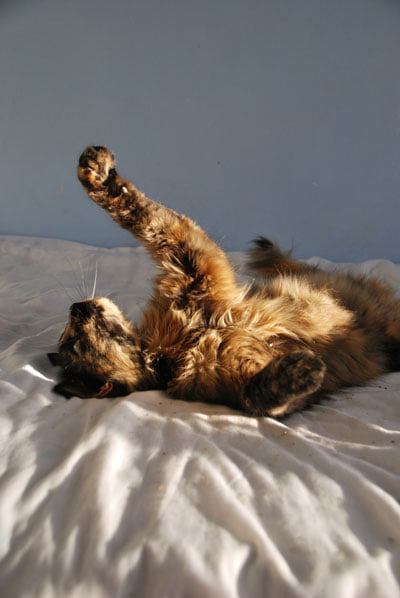 Essential Nutrients
Essential Nutrients
Older cats tend to prefer lounging a sun over the energetic play of their youth; a lower energy profile should be matched with a lower calorie diet thus their nutritional profile should be lower too.
You’ll want to be on the lookout for lower protein food that still appeals to your cat’s palate but is increasingly easy to digest (older cats have sensitive digestive systems, and their teeth aren’t the little razors they used to be).
While all adult cats need a balanced blend of protein, ,and vitamins; senior cats could use a little extra help with supporting their joints and immune systems.
If your cat enjoys dry food; feed them a ratio of about 28% protein and 10% fat. If they’re on a wet food diet, aim for 8% protein and 4% fat.
Read the label of your cat’s food for the following:
- A blend of healthy fats and glucosamine – this does well to support aging joints.
- Reduced amounts of phosphorus – this helps to support their kidneys.
- Taurine rich protein – this keeps your cat’s heart-healthy.
Common Illnesses
Sick or senior cats need to eat special diets. Often, senior cats experience a double whammy of being diagnosed with a chronic illness related to old age. In this ,their diet would need to be adjusted to accommodate their illness and any prescribed medication.
Senior cats are susceptible to a variety of illnesses, and many of them directly relate to their diets. Here are a few to brace yourselves for:


